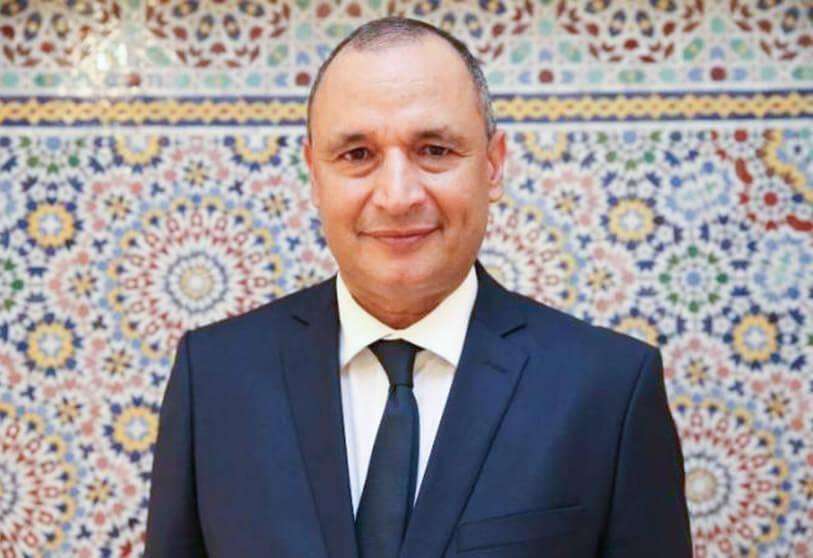Marruecos promueve la inversión de las monarquías árabes del Golfo

Marruecos está pidiendo más inversión extranjera en sus sectores en desarrollo. Esta es una de las llamadas más repetidas del gobierno de coalición de Aziz Akhannouch en el año que lleva en el poder. La última convocatoria la realizó el Ministro de Industria y Comercio, Ryad Mezzour, en la inauguración del 3er Foro de Zonas Industriales celebrado en Tánger.
“Marruecos tiene el potencial humano y estructural para atraer inversiones árabes y permitirle asumir el papel de locomotora del desarrollo a nivel regional”, dijo Mezzour en su discurso, que se dirigió en particular a los países árabes del Golfo Pérsico. No es casualidad que Tánger sea el lugar desde el que se hace este llamamiento. La ciudad portuaria del norte de Marruecos es objeto de una intensa campaña de promoción económica . La idea a largo plazo del Estado marroquí es convertir a Tánger, gracias a su puerto de Tánger-Med, en un polo económico que mire a los ojos a Algeciras, al otro lado del estrecho.
The promotion of Tangier, which already has a dynamism attractive enough for Emirati logistics companies such as the giant Emirates Logistics, wants more involvement from the Arab countries. Emirates Logistics had to acquire a new plot of land in the free zone of Tangier Automotive City in June 2022, due to the increasing volume of goods that the company plans to deal with.

The paradigm of massive foreign investment in North African countries began in the 1990s when they attracted the attention of the Gulf countries. In this decade, Morocco was the destination of 14% of Arab investment for non-tourist real estate construction projects. At present, the Moroccan kingdom is trying to direct investment more towards the industrial and service sectors rather than construction.
Morocco boasts in this regard its fourth position in the Arab Monetary Fund's annual ranking of economic competence, ahead of Kuwait and Oman. The trend accelerated in the 2000s, with the rise in oil prices and the end of the freeze on the European assets of the great Arab fortunes in the wake of the terrorist attacks on the Twin Towers.
In the Maghreb triad Tunisia-Algeria-Morocco, the kingdom has received the most total investment since 2003 (ANIMA, 2013).
For countries such as Saudi Arabia, the United Arab Emirates and Bahrain, investment in Morocco has become a way of diversifying their economic activities, which have always been heavily dependent on fossil fuels. This strategy is still on the agendas of the Gulf Arab countries today. It is also an interesting and powerful tool for economic diplomacy, in which the Petro Gulf monarchies are unrivalled, favoured by their solid cultural, religious and social relations with the Maghreb states.

The open-arms attitude promoted by the Moroccan government is not limited to Arab countries. The Alawite monarch himself, Mohammed VI, in his 6 November speech on the occasion of the anniversary of the Green March, gave several nods to investment from the UK. A considerable number of British companies are involved in Moroccan projects, especially in offshore energy.
According to official Moroccan data, foreign direct investment in Morocco looks good for 2022. In the first quarter of this year alone, and with figures still provisional, Morocco puts the investment received at 21.859 billion dirhams. A figure to be compared with the 34.489 billion dirhams received in the whole of 2019, a year before the pandemic. The highest figure reached in the years recorded by the Office des Changes was in 2018, when it reached 46.099 billion dirhams.
Entre los países árabes, los Emiratos Árabes Unidos lideran con mucho la lista de los mayores inversores y se ubica como el tercer mayor inversor del mundo. Le siguen Arabia Saudita, Kuwait, Baréin y Qatar . La lista ha estado históricamente dominada por Francia, que en el primer trimestre de 2022 compite con Estados Unidos por el primer puesto con 5.688 millones y 6.337 millones respectivamente.
Los sectores que reciben inversiones incluyen la industria, la construcción, el transporte y el turismo .










